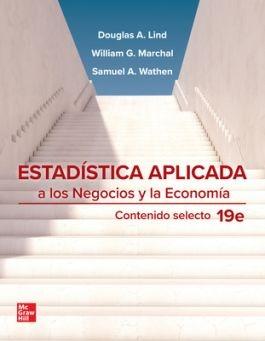Fuzzy Logic And Optimization.

 (0 Comentarios)
(0 Comentarios)
Comenta y valora este libro
pvp.68,30 €
Sin Stock. Posibilidad entre 11 y 20 dias
- ISBN:9788173197468
- Editorial: Narosa Publishing House
- Fecha de la edición:2006
- Encuadernación:Tapa dura
- Dimensiones: 0 cm x 0 cm
- Nº Pág.:180
- Idiomas:
Materias:
Otros libros de Nanda, Sudarsan
-
pvp.50,90 €
-
pvp.68,30 €
-
Chakraborty, Debjani; Dutta Majumder, D.; Nanda, Sudarsan
Fuzzy Logic And Its Application In Technology And Management.
Narosa Publishing House. 2007

pvp.108,30 €
Otros libros de Economía Cuantitativa
-
Cuevas Romo, Ana; Hernandez Sampieri, R.; Méndez Valencia, Sergio; Mendoza Torres, Christian Paulina
Fundamentos de investigación
Mcgraw-Hill Interamericana de España. 2025

pvp.32,00 €
-
Álvarez López, Roxana; Balmori De La Miyar, Jose; Bohon Devars, José Antonio; Domínguez De La Cruz, Salomón
Matemáticas para negocios
Mcgraw-Hill Interamericana de España. 2025

pvp.60,00 €
-
Lind, Douglas; Marchal, William; Wathen, Samuel
Estadística aplicada a los negocios y la economía "Contenido selecto"
Mcgraw-Hill Interamericana de España. 2025

pvp.61,70 €






